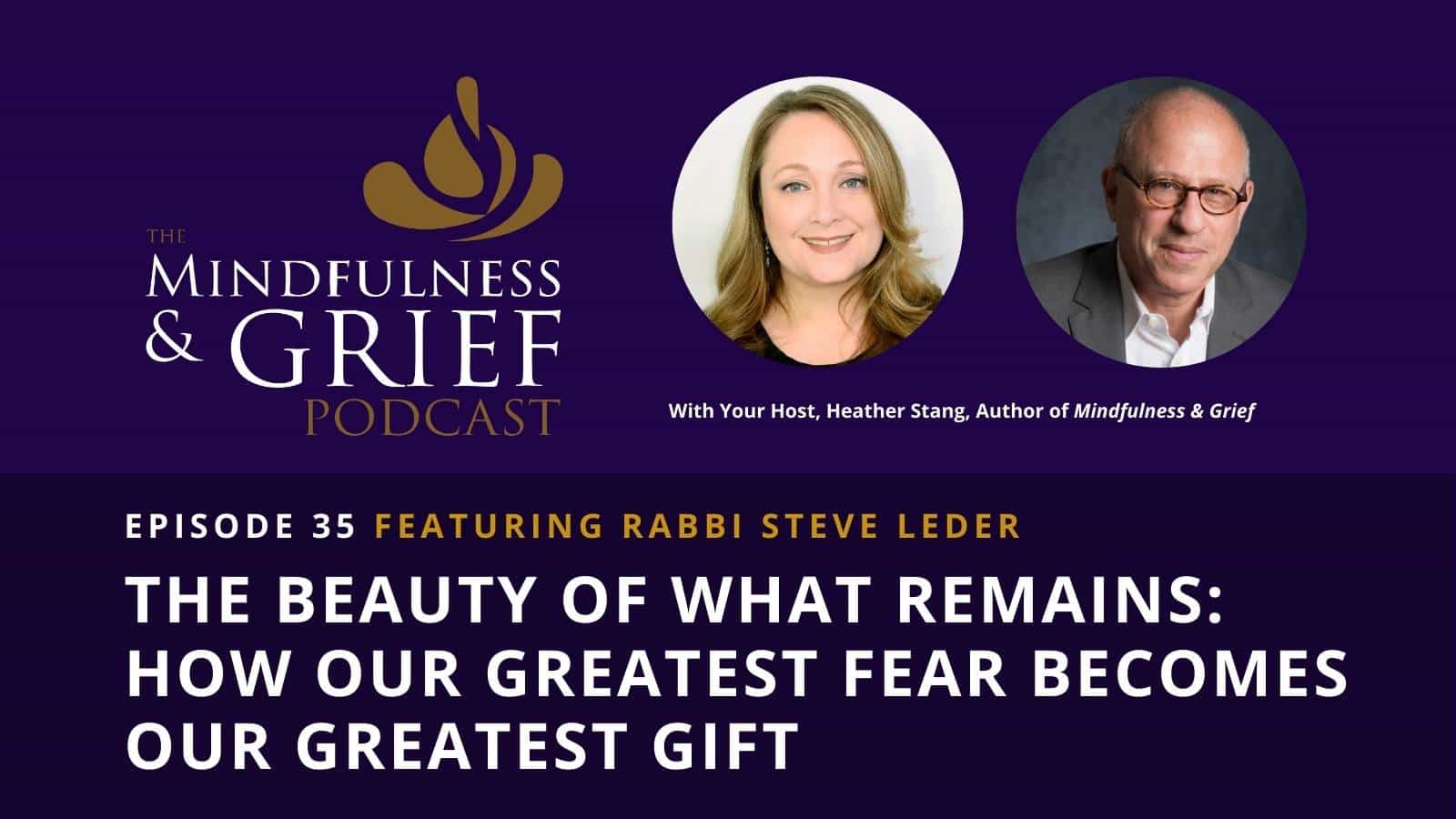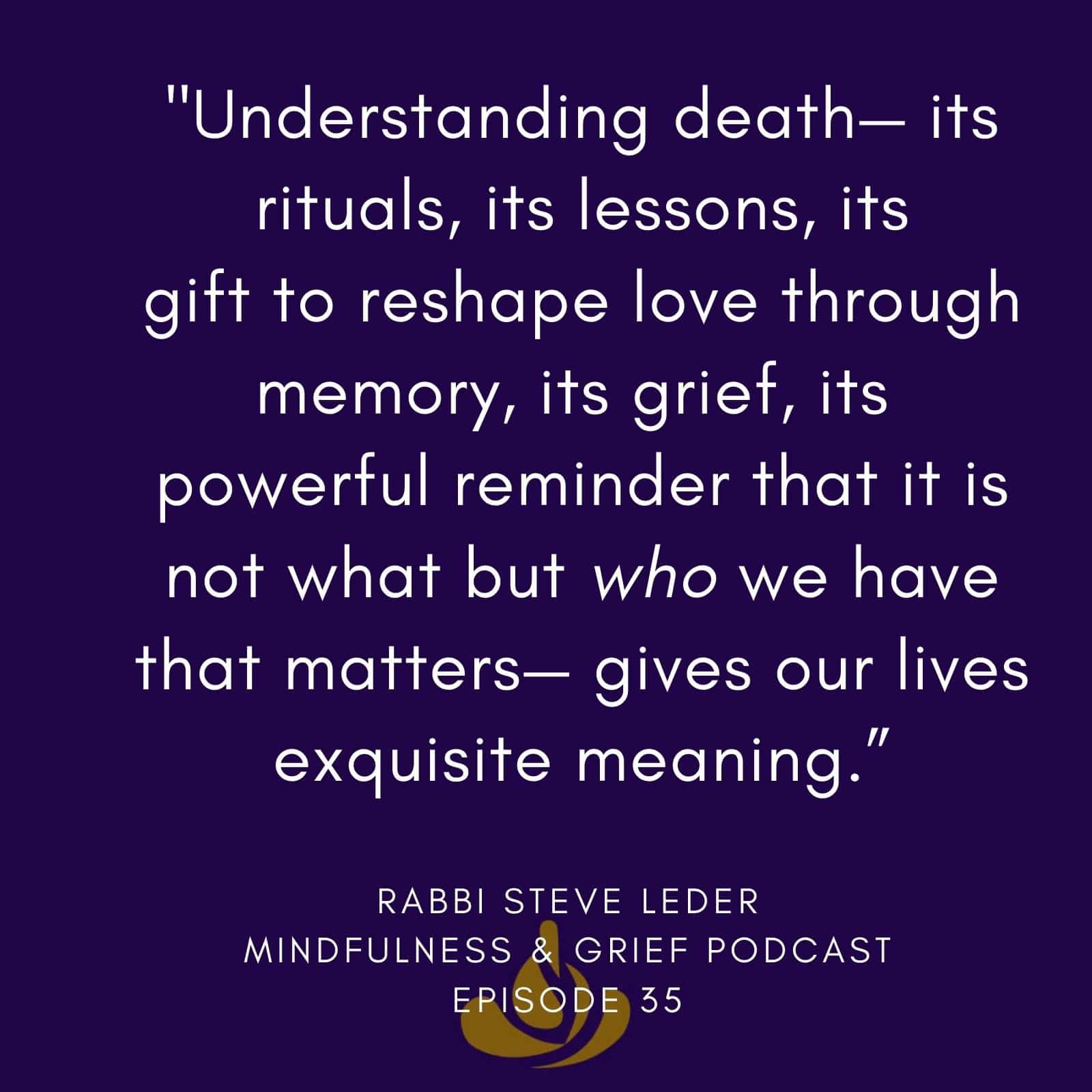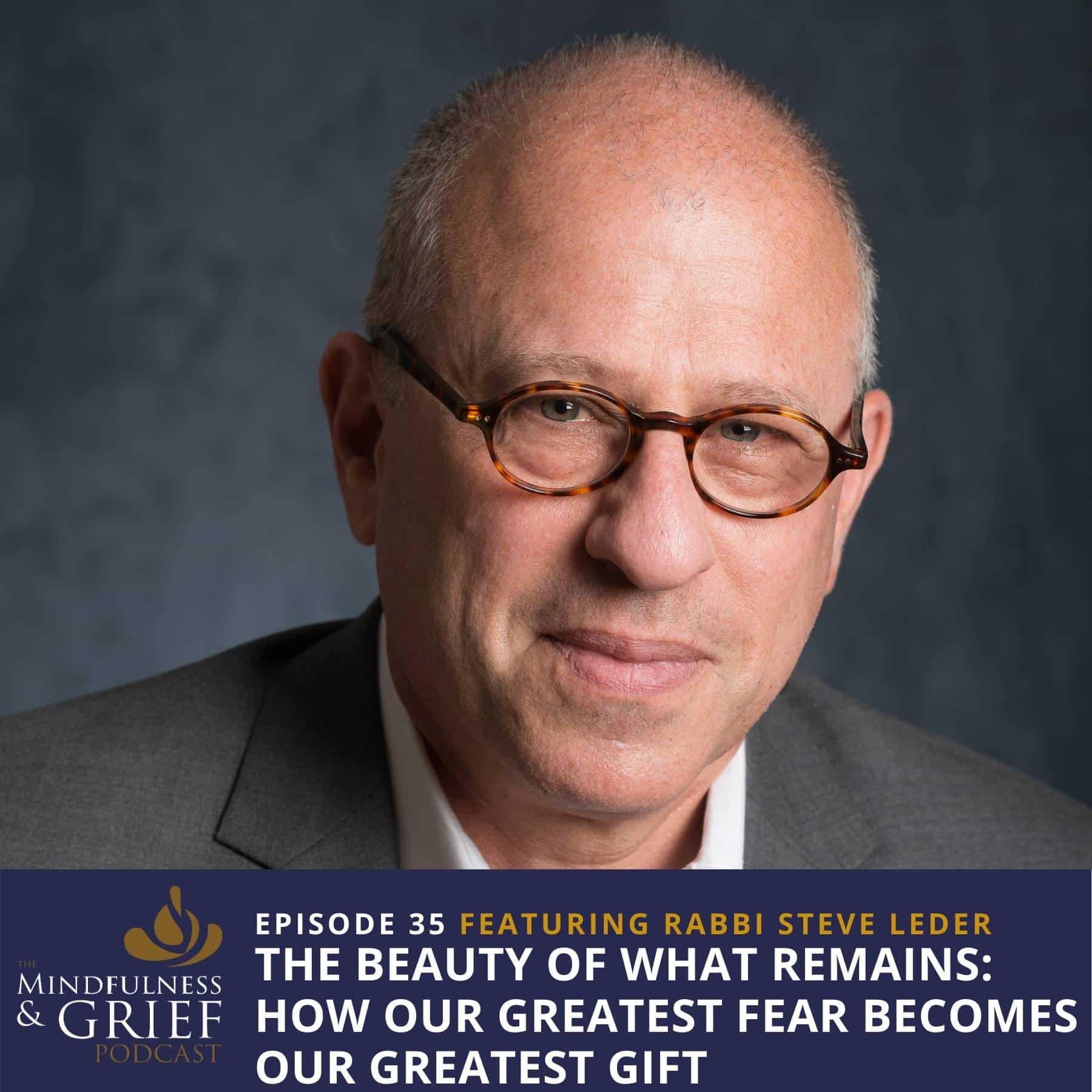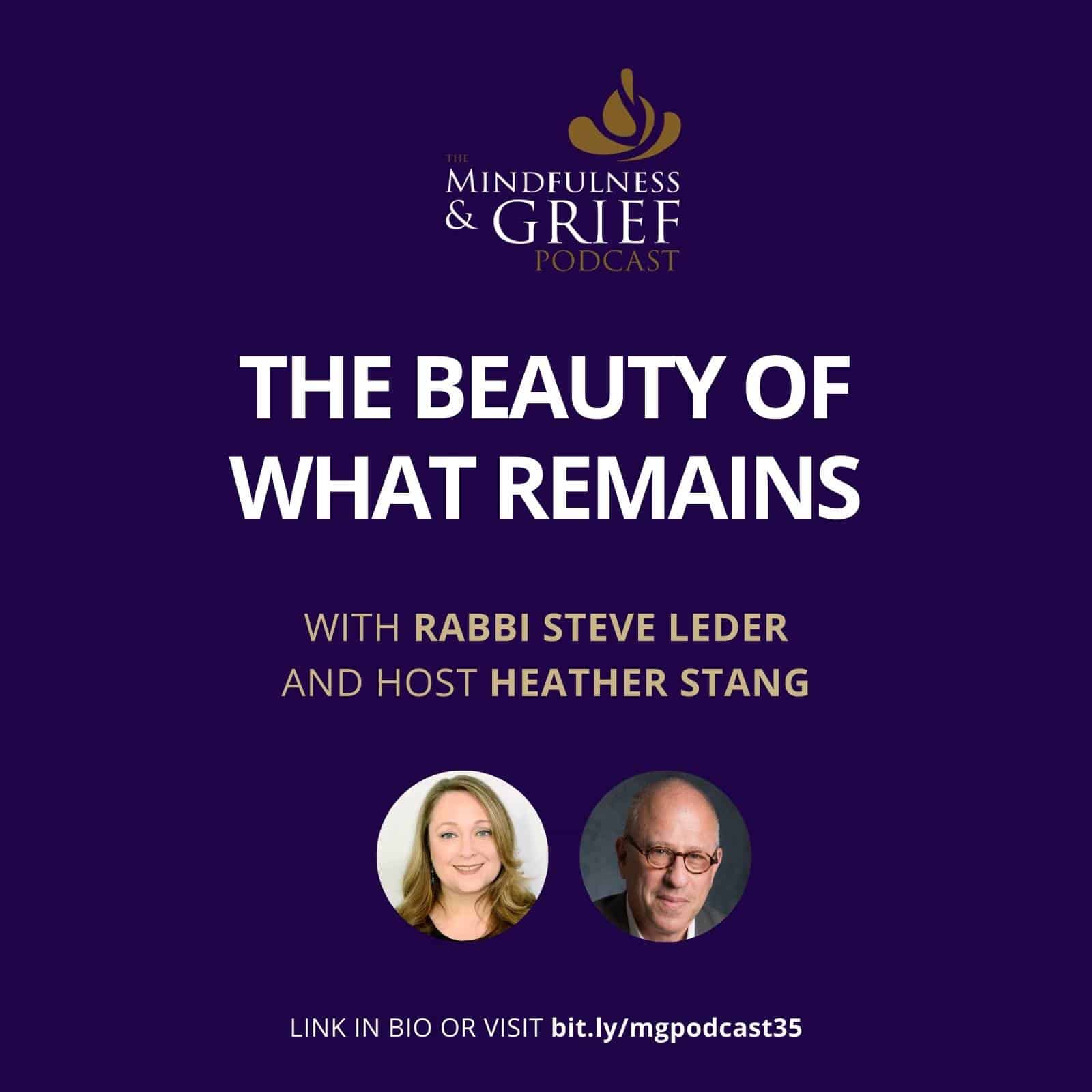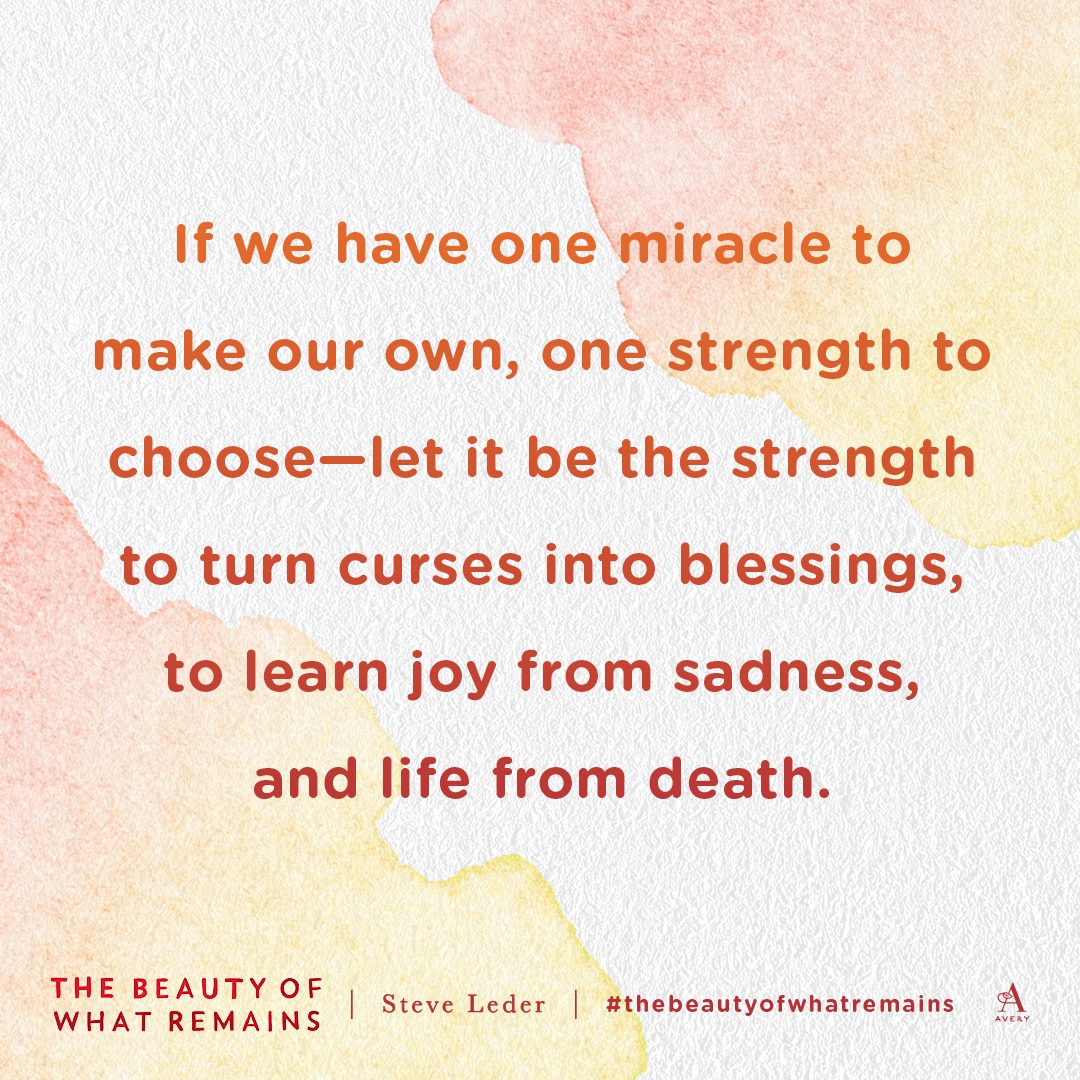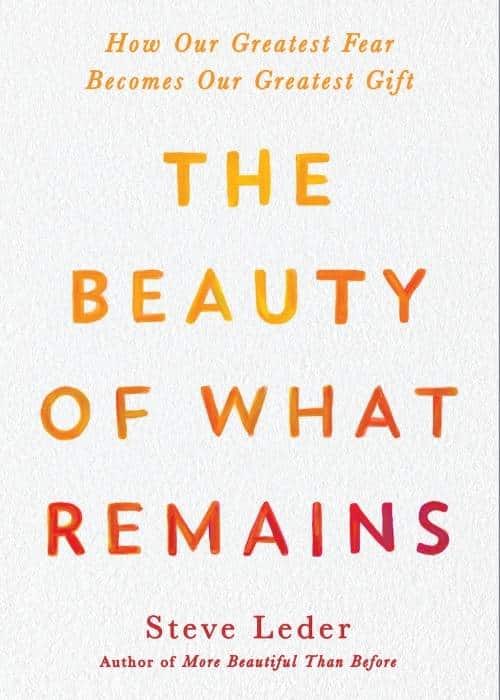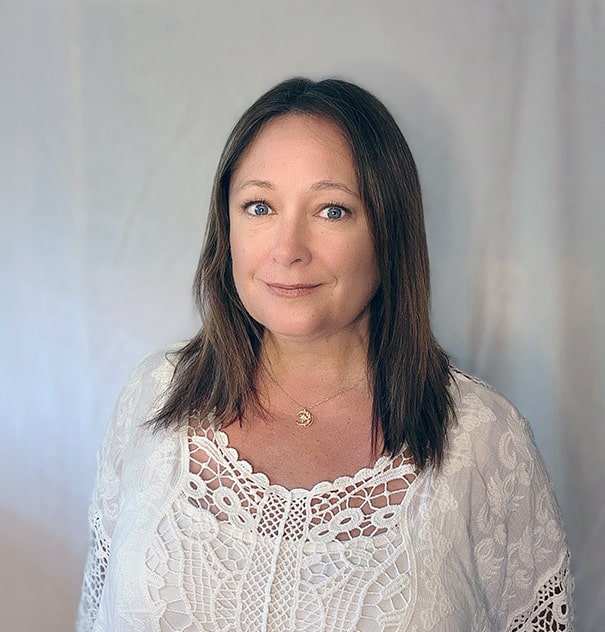Rabbi Steve Leder is no stranger to grief. As a rabbi, he has consoled hundreds of families over the years during their most difficult times. In his new book, The Beauty of What Remains, he walks us through his experience of losing his father. He takes us on the journey of self-discovery of how he learned to balance the conflicting emotions of losing someone who wasn’t always easy to love but was still an important figure in his life.
In The Beauty of What Remains, Rabbi Leder discusses how making peace with the fact that these feelings cannot be resolved is a resolution. Once you can make peace with the fact that you cannot change what happened in the past, you make space for the positive memories to emerge. Finding meaning in those memories is what helps you get back to living.
Ways to Overcome Fear As a Caregiver
Caregivers often struggle with how they should show up for their loved ones, especially as they get closer to death. Rabbi Leder has some tips to help caregivers navigate one of the hardest roles in the world.
Tip #1 Never Underestimate the Power of Touch
The power of communicating through touch, especially with a loved one who is suffering from an illness like dementia, is remarkable. Just sitting with your loved one and holding their hand can help both of you communicate when words are no longer an option. (Rabbi Leder acknowledges that this may not be possible during the pandemic.)
Tip #2 Create an Ethical Will
We write our eulogies while we are alive. It’s how we live that writes our story. By creating an ethical will, you leave behind a document that talks about your love, hopes, and dreams for the people you leave behind. It’s important to do this during the early stages of illness, if possible.
Tip #3 Take Them on a Mental Vacation
Create a transcendent vacation that encourages them to think about happier times. Sit by their bed and ask questions like:
- Who was your very first kiss?
- What was the greatest vacation you ever took?
- What was it like when you laid your eyes on your spouse for the first time?
By taking people out of their physical being and into the metaphysical, both of you can experience joy without even leaving the room. It can be the best moment they have had in a long time.
Tip #4 Just Show Up
Walk through the door as your authentic self. They want you to be who you are — not someone who is clearly holding back given the situation. For example: If you're a hugger, hug them. If you’re a feeder, feed them. If you’re a jokester, tell them jokes. If you are your authentic self when you walk in, then the rest of everything will unfold the way it should.
Tip #5 Take It One Step at a Time
Grief is a long road. Just take the next step forward. Take a shower. Go for a walk. Show yourself some compassion as you would others. Grief doesn't happen in a straight line and oftentimes we grieve even before our loved one has died. Show yourself empathy through this process.
How the Pandemic Has Created Meaningful Intimacy Through Grief
The grief from the global pandemic has caused us to take a collective pause and reassess what we value most. A busy life and a meaningful life are not the same. This pandemic has taught us to appreciate and value each other more than ever before. Funeral services have changed in both good and bad ways.
The good thing is now only the person's innermost circle is there to grieve together and tell stories with each other. It creates an intimacy that pre-pandemic funerals did not have. The bad thing is that families do miss out on condolences from their extended family and friends, food provided by people who care about them, and hugs and other personal touch that are so important to the human spirit. But we will get through this together.
Rabbi Leder’s book The Beauty of What Remains is now available on Amazon.
About Rabbi Steve Leder
Steve Leder is the senior rabbi of Wilshire Boulevard Temple in Los Angeles. After receiving his degree in writing and graduating cum laude from Northwestern University, and spending time studying at Trinity College, Oxford University, Leder received a master's degree in Hebrew letters in 1986 and rabbinical ordination in 1987 from Hebrew Union College. He is the author of three books: The Extraordinary Nature of Ordinary Things, More Money Than God: Living a Rich Life Without Losing Your Soul, and the bestseller More Beautiful Than Before: How Suffering Transforms Us.
This episode is brought to you by the Awaken: Meditation for Grief Program, which helps you cope with the heartache and pain of loss with meditation-based practices for your mind, body, and spirit.
